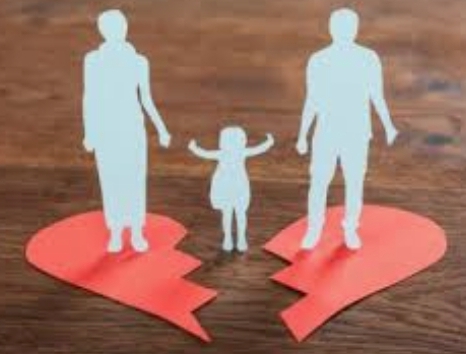The feelings and experiences expressed here point to a complex and emotionally charged narrative about divorce, betrayal, trust, and the aftermath of a relationship breakdown, particularly through the lens of men’s experiences in divorce situations. The stories describe a sense of betrayal not just through infidelity but through actions that undermine a partner’s financial stability, emotional health, and trust. The aftermath can be devastating not only for the individuals directly involved but also for their children, who are often caught in the middle.
Let’s explore this topic in detail, particularly focusing on:
- The Impact of Divorce on Trust and Relationships
- Children’s Exposure to Conflict
- The Emotional and Psychological Effects on Fathers and Sons
- Gender Dynamics and Perspectives in Divorce
- Healing and Moving Forward After Betrayal
The Impact of Divorce on Trust and Relationships
Divorce, especially when it involves betrayal, financial struggles, or perceived unfairness, can lead to long-lasting emotional scars, particularly when it involves a sense of being taken advantage of. For many, the dissolution of a marriage doesn’t just affect the romantic relationship but also shatters the trust they once had in their partner.
A. Financial and Emotional Consequences
- Financial Betrayal: In some cases, one spouse (often the ex-wife in the situations shared) may take assets or money, leaving the other struggling to survive financially. Even if legally justified, the emotional toll of feeling like you’re losing more than just money can be overwhelming.
- Emotional Damage: For many men, these actions leave deep emotional wounds. Feeling like you’re being punished for something you didn’t do (or that you were the one who invested emotionally and financially in the relationship) can cause resentment, bitterness, and mistrust that extends into future relationships.
B. Trust Issues
- Trust Erosion: The breakdown of trust doesn’t happen solely during the divorce itself but is often a slow, painful process that begins long before the marriage ends. Cheating, manipulation, and betrayal can distort the very foundation of trust in a relationship, making it nearly impossible to rebuild, even if someone later tries.
- Long-Term Effects: When someone experiences betrayal, they often develop a defense mechanism where they find it difficult to trust others, including future romantic partners, friends, or even family members. This is often reflected in statements like, “I don’t care what they say, they will turn on you regardless.”
Children’s Exposure to Conflict and Gender Dynamics
Children of divorced parents, particularly those exposed to vindictive behaviors or manipulation, often grow up with a distorted understanding of relationships, trust, and loyalty.
A. Boys and Trust Issues
- Learning from Conflict: As described, boys witnessing this kind of conflict may internalize these experiences in ways that influence their behavior toward women and relationships in the future. A son watching his father struggle after a bitter divorce may learn to associate women with betrayal or financial instability and may develop deep-seated issues with trust.
- Rejection of Female Figures: In some cases, sons may even reject their mothers, particularly if they feel their mother was responsible for turning them against their father. Over time, this can manifest in estranged relationships and loss of communication, especially when the mother plays an active role in undermining the father’s relationship with the child.
B. Daughters and Behavioral Modeling
- How Daughters Learn from Divorce: Daughters are also affected, but in a different way. If a mother behaves in ways that are viewed as vindictive, manipulative, or deceitful, daughters may learn to replicate this behavior in their own lives. They might adopt patterns of dishonesty, emotional manipulation, or lack of trust, especially if they don’t see healthier relationship models around them.
- Influence of Maternal Figures: A mother who uses coaching to guide a daughter on how to leave a marriage may unintentionally teach her that betrayal and manipulation are acceptable behaviors in relationships. This can create a generational cycle of mistrust and dysfunction.
The Emotional and Psychological Effects on Fathers and Sons
For fathers who experience betrayal and custody battles, the emotional fallout can be profound, especially when sons are turned against them or when they have to witness a breakdown in family dynamics that they didn’t cause.
A. The Pain of Parental Alienation
- Parental Alienation: The concept of parental alienation is prevalent when one parent attempts to turn the children against the other, often through manipulation or exaggeration of the other parent’s faults. Fathers who experience this often feel as though they are losing their children twice—once through the divorce and again through the manipulation of their relationship with their kids.
- Emotional Pain for Fathers: The father feels betrayed by their ex-spouse but also disconnected from their children, who might feel torn between the two. The emotional weight of being accused of wrongdoing or being rejected by children based on false narratives can be crippling.
B. Sons’ Long-Term Psychological Impact
- Resentment Towards Mothers: Sons who grow up in this environment may develop resentment towards their mothers and see them as the ones responsible for the family breakdown, leading to estrangement or a lack of respect for women in general. The actions of their mother could influence their own view of relationships and trust.
- Sons as Fathers: As sons grow into men, these early experiences can shape their relationships with women. They may carry unresolved issues of anger, distrust, or fear of betrayal into their own marriages and relationships. For some, it may even result in the rejection of relationships altogether, fearing a repeat of the cycle they witnessed.
Gender Dynamics and Perspectives in Divorce
Gender plays a significant role in the narratives of divorce, particularly with societal expectations of men and women in relationships.
A. Societal Views on Men and Divorce
- Men are often expected to be the providers and protectors in relationships, and when a divorce strips them of their financial security, they may feel like failures or victims. The situation becomes even more complicated when the financial or emotional abuse occurs at the hands of the ex-wife, making them feel powerless and vulnerable.
- There is a sense of unfairness that often accompanies divorce, where men feel they are penalized for their role as providers, even though they may have been the faithful, responsible partners in the marriage.
B. Women’s Role and Perception
- On the other side, women are often viewed as victims in divorce, especially if the man was unfaithful or abusive. However, in cases where women are seen as the instigators of the divorce or as taking advantage of the man’s situation, it can lead to a shift in how men perceive women, creating a sense of disillusionment and mistrust.
Healing and Moving Forward After Betrayal
After experiencing betrayal and the breakdown of trust, it can be difficult to find a way to heal and rebuild. Moving forward requires time, reflection, and a commitment to growth and self-improvement.
A. Rebuilding Trust
- The process of healing involves learning to trust again, both in relationships and in oneself. It requires forgiveness, not necessarily for the ex-spouse, but for oneself, for holding onto the hurt and bitterness that can prevent growth.
- Therapy or counseling can be key in helping individuals process the emotional aftermath and regain a sense of self-worth and confidence.
B. Role of New Relationships
- In the case of remarriage, individuals may find themselves cautious about trusting again, especially if they have had children who witnessed the breakdown of the first marriage. Open communication and patience are crucial for rebuilding trust in future relationships.
Conclusion: The Long-Term Impact of Divorce and Betrayal
The stories shared reveal the deep emotional scars that divorce, betrayal, and vindictive behavior can leave, especially for fathers and sons. These experiences shape their understanding of relationships, trust, and gender dynamics. The impact is often generational, with children, particularly sons, learning lessons about trust and betrayal that influence their relationships with women as they grow older.
While healing is possible, it requires self-reflection, forgiveness, and a conscious effort to break the cycle of mistrust that can be passed down through generations. In the end, the process of moving forward hinges on learning how to rebuild trust, both in others and in oneself.






